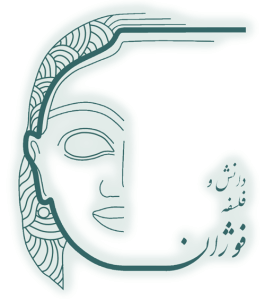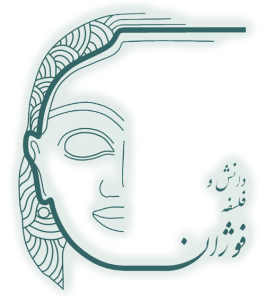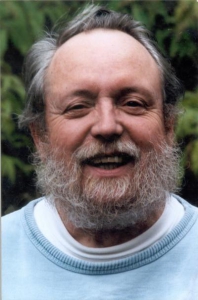Science and Religion 2
Michael Escott Ruse
- Florida State University
- https://philosophy.fsu.edu/people/faculty/michael-ruse
Research Interests
- Philosophy of Biology (Especially Darwinism)
- History and Philosophy of Science
- Science and Religion
- Ethics
My objections to Christianity
So, then the question becomes: should I regard myself as a blind man without a necessary sense? Here I think we can bring reason to play. Three things for me are definitive. First, is the problem of evil. I have heard all the theodicies going, but I find them untenable. Second is the problem of different faiths. “No man comes to the Father save he comes through me” (John 10:9). But this seems so unfair to so many. Are sincere Jews, Muslims, Hindus and others excluded? What do you do about Buddhists (moral and spiritual people if any are) who do not accept a Creator God?
Third, I think Christianity is incoherent because it is an incompatible fusion of Athens and Rome. On the one hand, God is outside time and space. On the other hand, God is a person. No can do. Beings outside time and space don’t have emotions, as the great theologians knew. Thus Anselm: “For when thou beholdest us in our wretchedness, we experience the effect of compassion, but thou dost not experience the feeling” (Anselm 1903, 13). Thus Aquinas: “To sorrow, therefore, over the misery of others does not belong to God” (Aquinas 1952, I, 21, 3). But I want no part of a God who feels no compassion for Anne Frank or no sorrow at the sufferings of those made martyrs under Hitler, such as Sophie Scholl and Dietrich Bonhöffer.
Of course, if I had faith I would accept that I simply don’t know the whole story. “For now we see through a glass, darkly” (1 Corinthians 13:12). But I don’t have faith and can hence use reason to explain why I don’t think I am missing out.
My objections to New Atheism
So why then am I not a New Atheist? Partly it is aesthetic. They are so vulgar.
Dawkins in The God Delusion would fail any introductory philosophy or religion course. To take one example, the Ontological Argument for God was first devised by Anselm and refurbished by Descartes. Roughly, it runs thus: God is by definition that than which none greater can be thought. Does He exist? Suppose He doesn’t. Then there is a greater who does exist. Contradiction! Hence, God exists.
In The God Delusion, Richard Dawkins dismisses this longstanding and much debated philosophical argument with a few sneering paragraphs. His critique is on a par with someone arguing against Dawkins’ own body of work by saying that selfish genes cannot exist because genes cannot be selfish (and with about as much understanding or sensitivity). But hardly any serious theologian or philosopher thinks the Ontological Argument is valid in the way I have just described it. It has been reframed and reworked. Every serious theologian and philosopher knows that the argument leads us to important and sophisticated questions about the nature of existence. Does the notion of necessary existence – which must surely be true of God if he exists – even make sense? And so forth. To arrogantly dismiss the argument is a bad scholarship and, worse still, bad taste. Ironically, I get on better with many of my Christian interlocutors than I do with many atheists.
Not closing the door on the God question
Yet I remain an atheist of Christianity. Does that mean that I think life is absurd? From an eternity of dreamless sleep and returning to an eternity of dreamless sleep? As a wag once said, “an eternity of dreamless sleep doesn’t sound too bad, so long as you don’t have to make endless trips to the bathroom!”
Actually, I think my deeply-forged Quaker mysticism kicks in here. Life is wonderful, life is mysterious… and I just don’t know. My position is not a cop-out, trying to sneak in God at the end. Cross my heart and hope to die (I will certainly get that wish)… I just don’t know. I am with J.B.S. Haldane said: “My own suspicion is that the Universe is not only queerer than we suppose but queerer than we can suppose”.
So there maybe something more. There may not. But don’t spend your life agonising about it or letting people manipulate you with false promises. Life here and now can be fun and rewarding, deeply meaningful. David Hume, overwhelmed by the sceptical nature of his philosophical inquiries, took a break to play backgammon. He dined, he conversed, he was “merry with my friends”. This is also my philosophy of life. A nice cup of tea, or perhaps a single malt, and a chat. With my beloved graduate students and my Cairn Terrier Scruffy McGruff, joining in the conversation!
My practice philosophy is to live for the real present, not a hoped-for future. Leave it at that. Stop worrying yourself to death about the Great Headmaster in the Sky. The poet George Meredith had it right.
“For that life is dear,
The lust afterlife
Clings to it fast.
For the sake of life,
For that life is fair,
The lover of life
Flings it broadcast.
The lover of life knows his labour divine,
And therein is at peace.
The lust afterlife craves touch and a sign
That the life shall increase.
The lust afterlife in the chills of its lust
Claims a passport of death.
The lover of life sees the flame in our dust
And a gift in our breath.”
Michael Ruse is a Professor of Philosophy of Science at Florida State University








